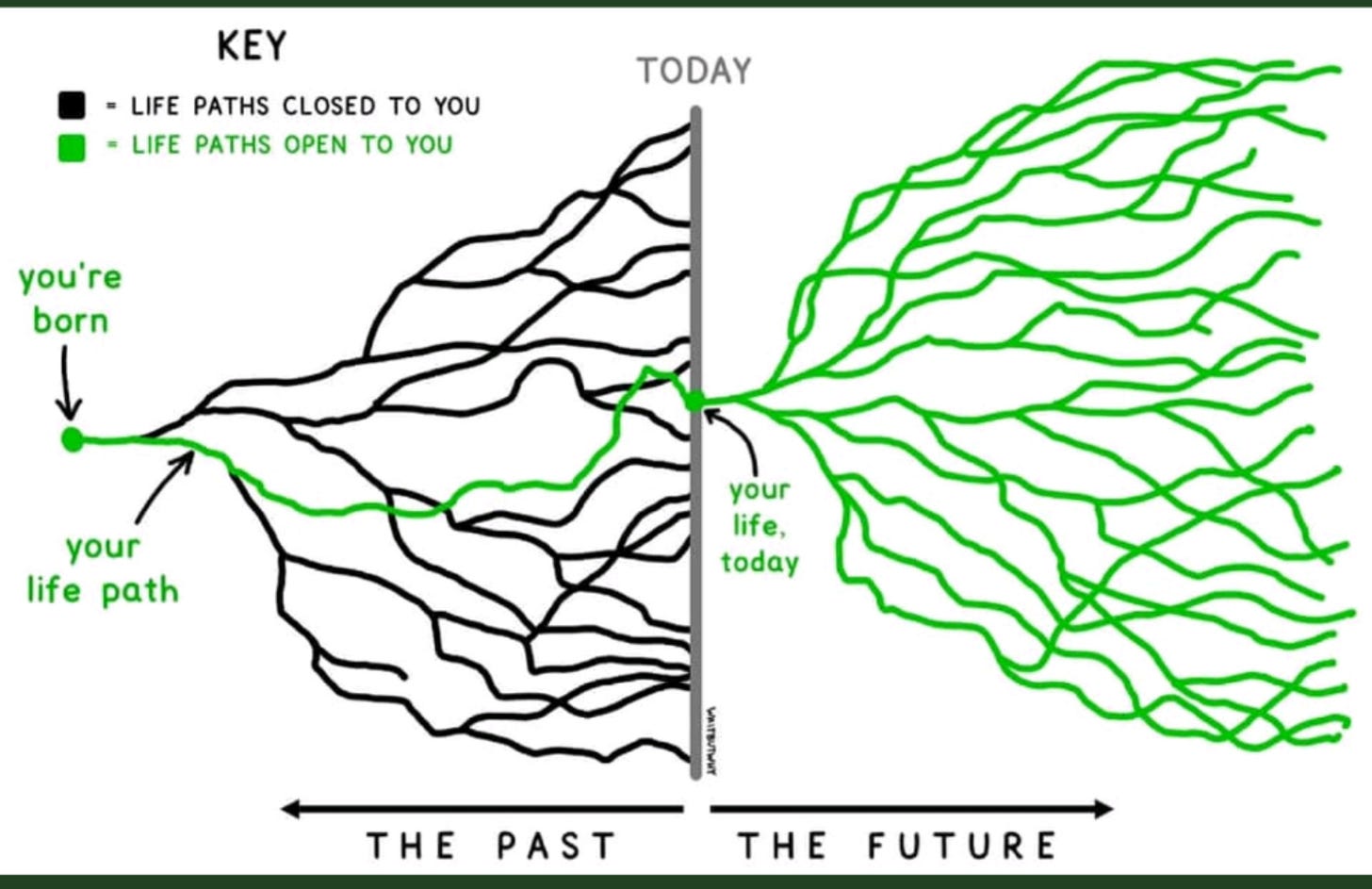Your career after partnerships
Dear Remora - I’m not sure if a career in partnerships is for me. Yes, I enjoy my BD role at an early stage health tech startup. But I’m fed-up with our Chief Revenue Officer. I'm considering a transition into Product. What advice do you have for someone like me, working in partnerships and trying to figure out my career paths and options?
Pursuing Professional Paths
—-------------
Dear PPP - to answer your question I want you to first think about your professional career like your previous career - your academic career.
Work as school
Companies as schools - In school, you studied at different schools, each with its own culture. At work, you join different organizations, each with its own culture.
Roles as classes - In school, you took many different classes. At work, you take on many different roles and job titles.
Managers as teachers - In school, you learned from a variety of teachers and coaches. At work, you learn from a variety of managers and coaches.
Mastery as your major - In your academic career, you eventually reach a point where select an area of focus - a major. At work, you develop mastery by choosing to major in a function (e.g. sales, finance, etc) or an industry (e.g. financial services, retail). Or both.
In my view, the goal of your academic and your professional career is to maximize how much you learn and develop as a person. That personal growth allows you to maximize your influence on the people and organizations you touch.
Building partnerships is a craft that, I believe, transcends job function and industry vertical. Your job in partnerships is an opportunity to hone that craft.
You may decide to major in partnerships. Or you might decide that partnership is just a class you'll take … and then move on to a different class. Either way, you will benefit from the skills you develop while working in partnerships, including negotiations, sales, strategy, etc.
But unlike in school, there is no defined graduation day at work. You must determine when it is time to move on.
How can you decide if it is time for a new class or a new school at work?
Begin with the end in mind … or at least your next destination.
The author Steven Covey writes about the notion of “begin with the end in mind.” In the 7 Habits of Highly Effective people he writes:
“begin with the end in mind” is based on the principle that all things are created twice. There’s the mental or first creation, and a physical or second creation to all things. Take the construction of a home, for example. You create it in every detail before you ever hammer the first nail into place.”
Beginning with the end in mind requires asking yourself, “Where am I trying to go? That can be a really tough questions to answer.
But you don’t have to begin with THE end.
Just pick your next destination. Select a target for where you want to be in 3 - 5 years.
Picking your next career destination is like forming a hypothesis. You are hypothesizing what role or company will accelerate your growth.
Imagine a scientist in a laboratory with no hypothesis. What is the likelihood of that scientist uncovering meaningful findings?
Without aiming for a destination you will likely fall into the trap of letting others define your next step for you. Your manager will urge you to stay in your role until that next promotion. Your coworker will insist that you will be happier if you transition into her department.
No! You need to muster the courage and the confidence to pick your own next destination. And then figure out what steps you need to take to get there.
The destination you pick may not be the right one. That is okay. You can always change your course as you gather new information. Just like the scientist who changes their hypothesis as they learn more.
I challenge you to write down the next career destination that you will target.
To help you out, here are some career paths for you to consider …
Career paths within partnerships
Learn to lead at a bigger or smaller company - Learning to operate at scale can make you more valuable at smaller companies. And learning to execute at earlier stage companies can help you be more effective at big companies.
Learn more deal types - There are many different types of deals - channel partnerships, product partnerships, licensing deals, joint ventures. The more you have exposure to different deal types, the more valuable an asset you will be.
You can find more in this post: “Is a Job in Partnerships/BD Right for You?”
Career paths outside of partnerships
Founder - working in partnerships offers you the chance to see how the entire company functions (or dysfunctions) - finance, sales, product, engineering, etc. Some partnerships leaders take that experience and build their own company. You could be one of them.
General manager / CEO - you don’t have to start your own company to apply your cross-functional skillset beyond partnerships. Becoming a general manager will test you across domains - like finance and operations - in ways that go beyond deal-making.
Investor - investing in and acquiring companies relies upon many of the same skills as building partnerships. There’s more capital at stake and more financial modeling involved but the hustle is similar. There are two common paths that partnerships leaders tend to take:
Corporate development: see Amy Hsueh, Heather Rivera, Ali Jafari
Venture capital & private equity: see Je Carr, Cristina Cordova, Mary Grove, Insiya Lokhandwala (TfT interview here), Justin Overdorff,
Taking the road less traveled
Take the road less traveled … it can make all the difference. The paths above include just a few of the many paths where your partnerships skills will be valuable.
Let these leaders post-BD/partnerships paths inspire you to chart your own unique path:
Product - Ryan Beauchamp,
People Ops / Human Resources - Netysha Santos
Government - Rick Klau
Executive coaching - Robyn Rapp (TfT interview here)
Executive recruiting - Margot Langsdorf
Education - Chris LaSala
Therapist - Gwendolyn Watson
Let this visual remind you of how many paths are infront of you, even when it feels like you’re stuck.

Photo by Tom Parsons on Unsplash Note, a special thanks to the talented individuals mentioned above who I volunteered to enhance this post. Some of them are friends and former colleagues and partners. Other are leaders I have admired from afar. Many worked at Google where I met them. You can find inspiring career paths from leaders around you if you look.


